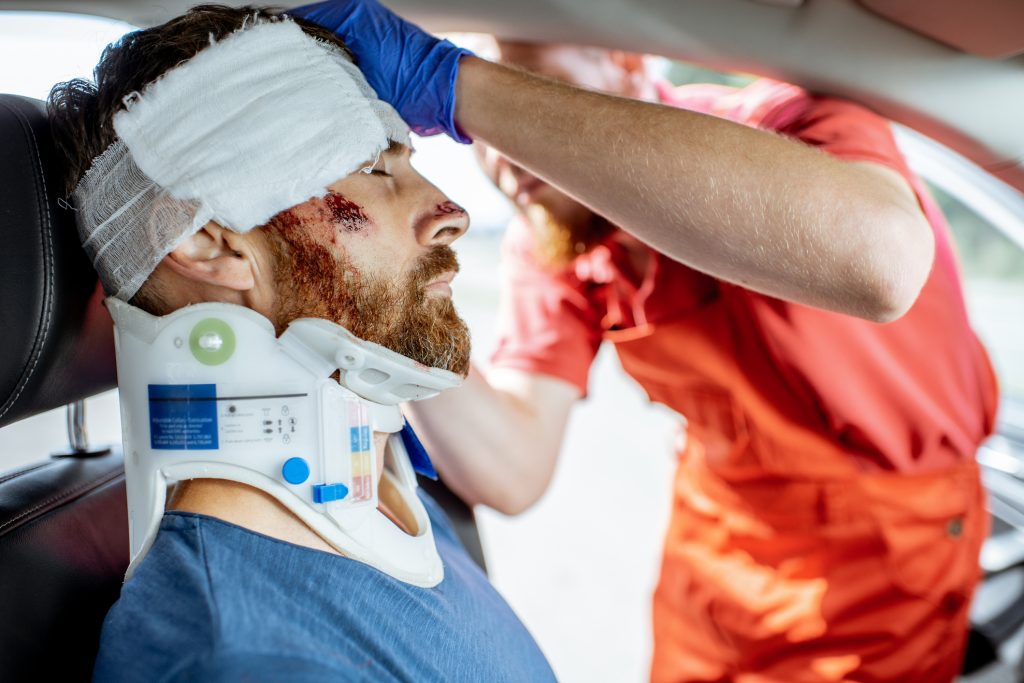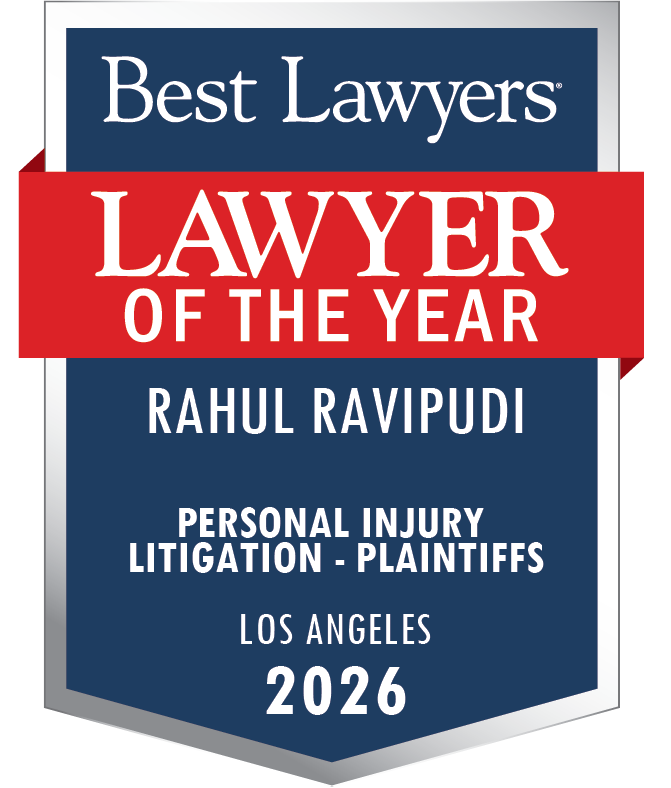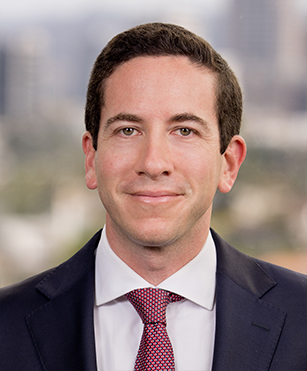Orange County Brain Injury Lawyer
Request Free ConsultationTraumatic brain injuries, which are commonly referred to as TBI, impair a person’s cognitive abilities or physical functioning. Most people cannot ever fully recover from a traumatic brain injury. They may have problems moving, regulating their emotions, or trusting their senses. Some victims experience changes in personality. These permanent changes cause significant and expensive changes in a person’s life, from hospital and medical bills to home health assistance, or moving into an assisted care facility.
Our Orange County brain injury attorneys are here to help. We will offer a free and confidential consultation and handle all cases on a contingency fee basis.
Recognition For Our Hard Work
Why Choose Panish | Shea | Ravipudi LLP For Your Personal Injury Case?
If you or your family is facing these changes because of someone else’s illegal or reckless behavior, consult an Orange County brain injury attorney. We can determine the best way to hold that person responsible before the law.
Panish | Shea | Ravipudi LLP is a leading personal injury law firm known for its dedication to securing justice for brain injury victims. Here’s why they stand out:
- Proven Track Record: Our Orange County injury lawyers have secured record-breaking verdicts and settlements, showcasing their ability to deliver results.
- Specialized Expertise: We have extensive experience handling brain injury cases and understanding the medical, legal, and emotional complexities involved.
- Client-Focused Approach: Our team is committed to personalized care, providing compassionate support while fiercely advocating for your rights.
- Resourceful Advocacy: Our firm utilizes top experts, cutting-edge technology, and thorough investigations to build strong cases.
- No Fees Unless You Win: With a contingency-based fee structure, you can pursue justice without financial stress.
Common Causes Of Orange County Brain Injuries

Brain injuries can result from various incidents, often caused by negligence or accidents. Here are some of the most common causes in Orange County:
- Motor Vehicle Accidents: Collisions involving cars, motorcycles, bicycles, and pedestrians are a leading cause of traumatic brain injuries (TBIs). Our car accident attorneys in Orange County are here for you.
- Slip and Fall Accidents: Falls due to wet floors, uneven surfaces, or poorly maintained properties frequently lead to head injuries.
- Sports and Recreational Activities: Contact sports, cycling, and other high-impact activities can result in concussions and other brain injuries.
- Workplace Accidents: Construction site falls, equipment malfunctions and other occupational hazards often lead to head trauma. Speak to an Orange County work injury lawyer for more information.
- Assaults or Violence: Physical attacks or abuse may cause significant brain injuries.
- Medical Malpractice: Errors during surgery, birth, or treatment can lead to hypoxic or traumatic brain injuries.
Understanding these common causes can help raise awareness and promote safety measures to reduce the risk of brain injuries. If a brain injury caused the death of a loved one, do not hesitate to contact our wrongful death lawyers in Orange County today!
A basic overview of the medical issues pertaining to traumatic brain injuries is important to understanding them. The Mayo Clinic classifies traumatic brain injuries into three categories:
- Mild
- Moderate
- Severe
Though traumatic brain injuries are classified in these terms, it is important to note that even mild traumatic brain injuries and concussions are still very serious injuries. The symptoms of brain injuries may be:
- Physical
- Sensory
- Cognitive
- Behavioral
- Mental
The symptoms of a traumatic brain injury in each classification will vary in character and intensity. It is important that victims of a traumatic brain injury and their families understand that some symptoms will be immediately apparent, but other symptoms may not appear for weeks, months, or even years.
Mild Traumatic Brain Injuries
Most traumatic brain injuries are mild ones. A mild traumatic brain injury is commonly accompanied by the following physical symptoms:
- Headaches
- Nausea
- Fatigue
- Drowsiness
- Problems with speech
- Dizziness or loss of balance
These injuries often show sensory symptoms such as blurred vision, ringing in the ears, or changes to the ability to smell. Some victims of a mild traumatic brain injury will also be sensitive to light or sound.
Perhaps the most serious symptoms of a mild traumatic brain injury–or any brain injury for that matter–are the cognitive, behavioral, and mental symptoms. These symptoms may have an even greater impact on the victim’s day-to-day life than the physical or sensory ones.
These cognitive symptoms can come in the following forms in cases of mild traumatic brain injury:
- Loss of consciousness for a few seconds up to a few minutes
- A victim may be dazed, confused, or disoriented after suffering a mild traumatic brain injury
- Victims of mild traumatic brain injuries may have problems remembering or concentrating
The mental and behavioral symptoms commonly associated with mild traumatic brain injuries are mood changes or swings, depression, anxiety, and changes in sleep patterns.
According to the Center for Disease Control, repeated mild traumatic brain injuries may lead to longer recoveries for their victims. In some instances, people who have suffered multiple or repeated mild traumatic brain injuries may suffer more severe symptoms or face long-term issues with concentration, memory, headaches, and balance.
The most common tests used to diagnose a traumatic brain injury are called “neuropsychological” or “neurocognitive” tests. These tests are used by healthcare providers to identify the effects of a mild TBI or concussion. A person can still have a mild traumatic brain injury even if the injury is not captured by these tests.
Diagnosing a mild traumatic brain injury does not require a CT scan–though these scans are often used to determine if a person is suffering from or at risk for bleeding on the brain after a brain injury.
Moderate & Severe Traumatic Brain Injuries
Moderate to severe traumatic brain injuries are associated with all of the symptoms of a mild traumatic brain injury, but they also include other, more intense symptoms that may appear in the hours and days after a head injury.
First, the physical symptoms of moderate and severe brain injuries are more intense. Victims of these types of traumatic brain injuries are likely to experience:
- Loss of consciousness for up to several hours
- Persistent or worsening headaches
- Repeated vomiting or nausea
- Convulsions or seizures
- Clear fluids draining from the nose or ears
- Weakness in the fingers and toes
- Loss of coordination
The cognitive and mental symptoms of these types of traumatic brain injuries are intense, often including:
- Profound confusion in the victim of the injury
- Agitation, combativeness, or other unusual behavior
- Slurred speech by the victim
The most severe traumatic brain injuries can leave the victim in a coma or with a permanent disorder of his or her consciousness.
Symptoms of Traumatic Brain Injuries in Infants & Young Children
Traumatic brain injuries in infants and very young children present a unique danger because the children may be incapable of communicating their symptoms to their parents or other caregivers. Children with traumatic brain injuries commonly exhibit the following symptoms:
- Changes in eating or nursing habits
- Unusual levels of irritability
- Persistent crying or inconsolability
- Changes in focus
- Changes in sleep habits
- Seizures
- Sadness or depression
- Persistent drowsiness
- Loss of interest in their favorite toys or activities
What Are the Short-Term & Long-Term Effects of a Brain Injury?

The physical, cognitive, mental, and emotional symptoms of a traumatic brain injury will impact their victims in both the short and long-term. According to the Brain Injury Association of America (the “BIAA”), traumatic brain injuries tend to affect both the physical and financial health of those who suffer them. Each will be discussed below.
The Economic Implications of a Brain Injury
Victims of Traumatic Brain Injuries Face Increased Healthcare Expenditures
A recent study from the BIAA examining the healthcare billing patterns of 63 people with traumatic brain injuries found that people with brain injuries will utilize the healthcare system more frequently than people without them. Sadly, the severity of the brain injury was not a significant factor in the brain injury victims’ increased utilization of the healthcare system. There are at least two things to take from that study.
First, individuals with traumatic brain injuries are forced to spend more money on healthcare than those without traumatic brain injuries, costing them exorbitant sums of money. Second, traumatic brain injuries impose larger costs on the American healthcare system as a whole due to the victims’ increased utilization of the healthcare system. Preventing traumatic brain injuries is then important for both the victims who suffer from them and for American society as a whole.
Traumatic Brain Injuries in the Workplace
The CDC has recently issued findings stating that the symptoms of traumatic brain injuries–symptoms which may last for months or even years–detailing the impact of a traumatic brain injury on a person’s ability to hold down a steady job. The consequences of these injuries are severe for people who suffer them and their families.
For example, another recent study of 435 people with mild traumatic brain injuries who were working before their injuries showed that there were professional consequences for them in both the short-term and the long-term. For example:
- Fewer than half of the participants returned to work by two weeks after their injury
- 17% of the study’s participants were not working twelve months after their injury
- 21% of the participants reported a decrease in their annual income
The study found an overall association between mild traumatic brain injuries and both the loss of employment and other economic burdens for the victims.
The Negative Health Effects of Traumatic Brain Injuries
Other studies have found negative health impacts of traumatic brain injuries in people with traumatic brain injuries of all levels, even though they face increased healthcare expenditures. Specifically, the Centers for Disease Control (the “CDC”) has found that about 50% of people with traumatic brain injuries will either experience a further decline in their daily lives or die within five years of that injury. The life expectancy of a person with a traumatic brain injury is nine years shorter than a person without one.
This decreased life expectancy is due to an increased risk of dying from several causes, including:
- Seizures: People with traumatic brain injuries are fifty times more likely to die from a seizure;
- Drug Poisoning: traumatic brain injury victims are eleven times more likely to die of drug poisoning;
- Infections: traumatic brain injury victims are also nine times more likely to die from infection; and
- Pneumonia: fatal cases of pneumonia are six times more common in traumatic brain injury victims
Types Of Brain Injuries
Brain injuries can vary in severity and cause. Here’s a simplified overview:
- Mild Traumatic Brain Injuries (MTBI): Typically caused by a bump, blow, or jolt to the head. Repeated head impacts or severe injuries can lead to more serious conditions.
- Shaken Baby Syndrome: A form of TBI caused by violent shaking.
- Concussions: Result from a direct blow to the head.
- Penetration Injuries: Caused by objects like bullets or knives, which push fragments into the brain.
- Closed-Head Brain Injuries (CHBI): Occur when the head is struck by an external force (e.g., hitting a wall), but the skull remains intact. Swelling inside the skull can compress brain tissue, leading to serious complications. These injuries are often hard to detect but can have long-term effects.
Understanding these types can help identify causes and determine potential legal actions in cases involving negligence.
What Are the Leading Causes of Traumatic Brain Injury in the United States?
According to the Brain Injury Association of California, over 1.7 million people suffer a traumatic brain injury each year in the United States. How do most brain injuries occur?
- Falls (28%)
- Motor vehicle accidents (20%)
- Blow to the head (19%)
- Assaults (11%)
Who Has The Highest Risk For Traumatic Brain Injury? According to the data:
- Males are about 1.5 times as likely as females to sustain a TBI
- Ages 0 to 4 years and 15 to 19 years of age
Damages You Can Recover After a Brain Injury
Successful brain injury lawsuits result in an award of financial compensation to the injured person. That financial compensation is known as damages. Damages are awarded with the intention of putting the brain injury victim in the same place that he or she would have been if they had not been injured in the first place.
Commonly Awarded Damages in Brain Injury Cases
Under California law, brain injury victims are entitled to the following kinds of damages:
- Medical Expenses: successful plaintiffs in brain injury cases are entitled to their reasonable medical expenses–both those that they’ve already incurred and those that they will incur in the future as a result of the injury.
- Lost Wages: brain injury victims are also entitled to recover for both the wages they lost due to the injury and the wages they will lose in the future.
- Impaired Earning Capacity: Brain injury victims may receive compensation for their lost ability to earn as much money as they would have had they not suffered the injury.
- Pain & Suffering: Finally, brain injury victims are entitled to compensation for the past and future pain and suffering that they experience due to the injury.
- Lifecare Plans
A lifecare plan is a plan created by the brain injury victim’s doctors that is intended to cover their future medical bills as well as pay for the services that will be necessary for the victim if the victim can no longer provide for themselves.
A good life care plan will consider the challenges facing traumatic brain injury victims as well as the specific conditions that cause those challenges. The significance of a lifecare plan–which will often need to support the victim for the rest of his or her life–cannot be overstated, and it is one of the many reasons that it is important to consult with a knowledgeable brain injury attorney as soon as possible.
How Our Attorneys Can Help You Recover Compensation
The lives of brain injury victims and their loved ones can change drastically after the injury. Medical bills, inability to work, and other caregiving responsibilities come at them and their families in a flurry. A lawsuit with the wrong attorneys can further compound these issues in the wake of the injury.
You can consider your case handled when you hire the Orange County brain injury lawyers at Panish | Shea | Ravipudi LLP. Working with our attorneys allows our clients to put their minds at ease because our attorneys bring a caring, compassionate approach to our clients’ cases. Here are just a few of the benefits of hiring our attorneys:
A Track Record of Excellence
While a result cannot be guaranteed in a legal proceeding, our attorneys work diligently to maximize the value of every case that touches their desk. Our attorneys have achieved numerous multi-million dollar results in brain injury cases. While these stats are impressive, we are most proud of the service to our clients and the way that this compensation has changed their lives.
An Understanding of Brain Injury Cases
Our brain injury attorneys know the law and understand how these cases play out. They will bring this extensive knowledge and deep understanding to bear when litigating your case and acting as your trusted counselors in a dark time.
For example, our attorneys understand the importance of a prompt, thorough investigation. They will immediately set out on that investigation once you hire them.
Further, brain injury cases are complicated matters that may go on for years. Many defendants know the value of these cases and will try to lowball our clients in the early stage of their case. Our attorneys know a good offer when they see one and will counsel patience on the part of our clients when appropriate.
Resourceful Advocates for You
Brain injury cases present an array of complex medical and scientific issues. Disputes will likely arise over the cause of the injury, how severe the injury was, the injury’s symptoms, and the long-term impact of that injury. A brain injury lawyer must be prepared to provide medical and scientific evidence to address all of them.
Our attorneys know just how to do that. Our attorneys cleverly utilize the top medical, scientific, and technological evidence to force defendants to make meaningful settlement offers or face going to trial.
Contact An Orange County Brain Injury Attorney Today
If you or someone you love has suffered a traumatic brain injury, you may be able to receive some compensation from a brain injury lawsuit.
Panish | Shea | Ravipudi LLP’s attorneys have been recognized for excellence among our consumer and trial attorney peers. We have been honored as Most Influential Attorneys and Best Lawyers in America and have received numerous awards for Trial Lawyer of the Year.
Call today at (310) 928-6200 for a free case evaluation. We serve clients in Los Angeles and throughout Southern California.
















